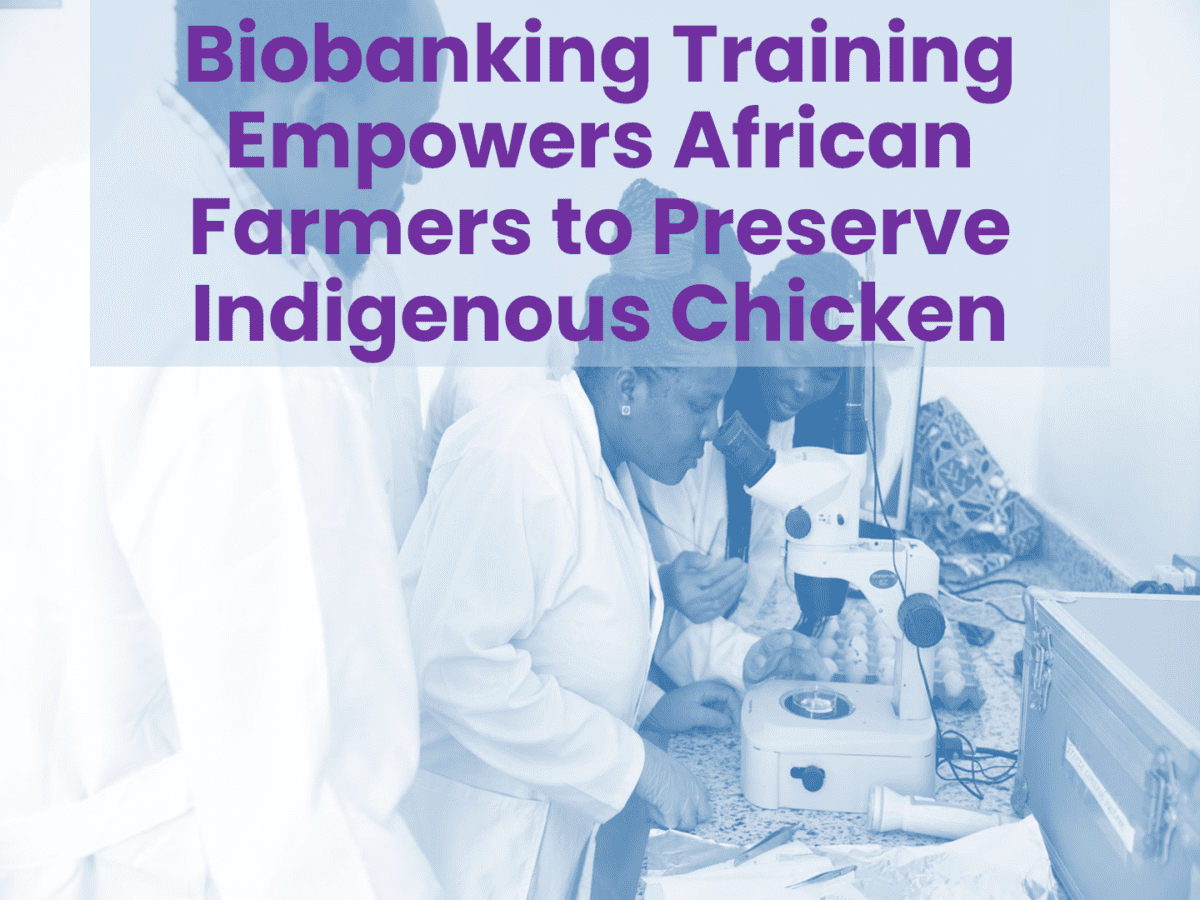Biobanking Initiative to Preserve African Indigenous Chicken

The International Livestock Research Institute (ILRI) has embarked on a mission to preserve Africa’s indigenous chicken breeds by conducting a transformative training program for twenty-five scientists hailing from eastern and central Africa. The workshop, held at the National Animal Genetic Resource Centre and Data Bank (NAGRC&DB) in Entebbe, Uganda, focused on avian reproductive biotechnology and aimed to equip experts with the knowledge and skills needed to conserve and enhance the genetic resources of Africa’s indigenous chickens.
Indigenous chicken populations have long been under threat from diseases, genetic challenges, breeding limitations, and natural disasters. These challenges jeopardize the rich genetic diversity present in these chickens, which have adapted to the African environment over generations.
The training, conducted from September 4th to 9th, was part of the ‘Biobanking of Indigenous Chicken Breeds’ project. This initiative aims to safeguard the genetic heritage of African and Southeast Asian indigenous poultry breeds for future use, ultimately enhancing their resilience and productivity.
Traditionally, preserving biological materials in birds has been reliant on semen, which has limited the conservation of certain crucial genetic elements. Moreover, the unique structure of avian eggs posed a challenge, as it made preserving ova and fertilized embryos difficult. Christian Tiambo, a scientist at ILRI and one of the trainers, pointed out these challenges but also presented a solution.
Avian primordial germ cells (PGCs), the initial population of germ cells established during early development, can be extracted and reintegrated into recipient embryos, preserving the complete genetic makeup of the avian stock. This breakthrough technique enables the conservation of avian genetic diversity without relocating genetic material from its original regions or countries.
Mary Mbole Kariuki, a technology and innovation specialist at the African Union-InterAfrican Bureau of Animal Resources (AU-IBAR), highlighted the importance of preserving indigenous animal genetics, which are well-suited to the African environment and play a crucial role in sustaining livelihoods.
The six-day training program included lectures on stem cell biobanking and hands-on laboratory sessions using Ugandan chicken ecotype eggs. Participants also had the opportunity to visit NAGRC&DB, an AU-IBAR regional animal resources seed center of excellence.
READ: McKinsey: Alternative Seafood to Meet Growing Global Demand
Jackson Mubiru, head of assisted animal reproductive technologies at NAGRC&DB, emphasized the vital role of biobanking in conserving poultry breeds for research purposes, particularly in enhancing disease resistance and productivity.
Ben Lukuyu, a senior scientist and ILRI Uganda’s country representative, shared ILRI’s regional research findings, underlining the significant impact of improved genetics on household incomes and livelihoods. He pointed out that ILRI’s work in the Ugandan pig sector had demonstrated that smallholder farmers could increase their incomes by accessing more productive breeds.
With the poultry sector in Uganda rapidly expanding and incorporating breeds from around the world, this training not only presents research opportunities but also holds the potential to boost smallholder livestock farming while safeguarding local breeds.
The training program is creating a community of practice to facilitate knowledge transfer and support national agricultural research services in livestock development using stem cell biobanking in Africa. Materials used during the training have been biobanked, and the conservation actions initiated during the event will be extended and implemented by the trainees in their respective countries.
The outcomes of this training will also serve as an advocacy tool for the development of local poultry conservation programs in eastern Africa and their related value chains, ultimately leading to improved livelihoods for communities in the region.
The ‘East Africa training workshop on reproductive and surrogate technologies for biobanking and restoration of indigenous chicken genetic resources’ held in September marks a significant step forward in avian reproductive and surrogate biotechnology in Sub-Saharan Africa.
This collaborative initiative on south-to-south cooperation is supported by the International Livestock Research Institute, the Centre for Tropical Livestock Genetics and Health, the African Union Development Agency, the African Union-InterAfrican Bureau of Animal Resources, and the National Animal Genetic Resource Centre and Data Bank. Participants in this groundbreaking training came from Kenya, Ethiopia, Tanzania, Rwanda, Burundi, Cameroon, and Uganda, reflecting the regional and collaborative nature of the endeavor.



